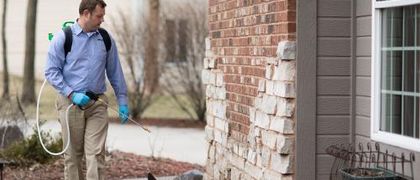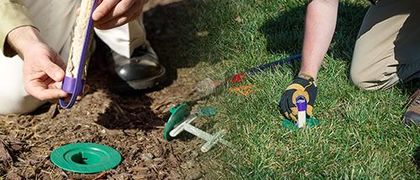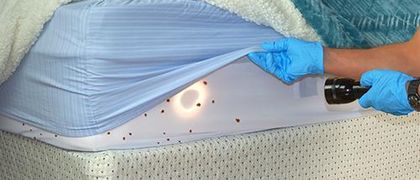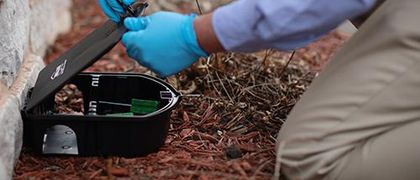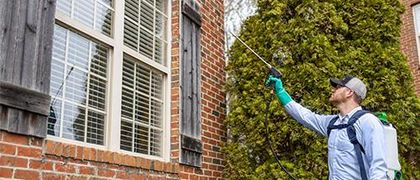What You May Not Know About Des Moines House Centipedes
Surprisingly, not all household insects are bad. For example, some homeowners prefer to leave Des Moines house centipedes alone because these bugs can actually be an asset. Besides not harming your household items, furniture, or food supplies, these insects also feast on other bugs, such as roaches, moths, and even termites and bed bugs.
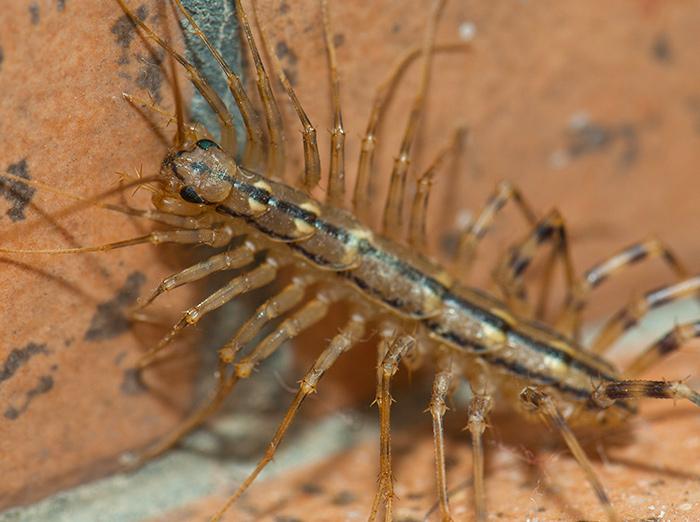
Are house centipedes in Des Moines dangerous?
While the toxin from their venom can hurt, causing minor swelling, it is not life threatening. Although they’re considered beneficial insects by some people, others see them as a threat or nuisance because they look intimidating and are able to bite. Here are some guidelines for recognizing house centipedes, in addition to a few facts regarding some of their common behaviors.
What do house centipedes look like?
These insects have several distinctive physical features and can seem scary, especially when you see or feel one crawling up your leg.
- House centipedes are short as they’re only 1 to 1.5” long.
- Because they have 15 pairs of legs, house centipedes are known as leggy creatures.
- The last pair of antennae is almost twice as long as the length of their body.
- The color of the house centipede is usually grayish-yellow.
- Three dark stripes extend down the entire back of the insect.
- These nimble insects move rapidly and are mostly active at night as they’re nocturnal critters.
- House centipedes are extremely fragile.
- While some house centipedes don’t even have eyes, others have compound eyes that can have up to 200 optical units.
- As they have weak eyesight, they rely largely on their sense of smell and touch for tracking prey.
- They live considerably longer than most insects, living as long as six years.
Where do house centipedes live?
House centipedes generally gravitate towards cellars, bathrooms, kitchens, basements, laundry rooms closets, and damp spots. You can find them hiding out in attics in warm weather. They also hang out in underground areas of a house that are not excavated. However, they do not enter through drains as many people believe they do.
Why am I finding centipedes in my house?
Like many other pests, centipedes are attracted to food, shelter, and water. Centipedes eat other insects, so if your home is already infested with other pests like spiders, worms, or other soft bodied anthropods then you are more likely to see centipedes in your home. Also, if you leave any standing water around your property they will be more likely to make their way inside.
How do I get rid of centipedes?
If you don’t want centipedes, the best way to avoid them is to make your home less inviting. For example, look for cracks, used as entryways, and seal them. Installing a more efficient fan in showers is a good idea, as well as using a dehumidifier, especially in your basement. Other prevention methods include:
- Try to eliminate the insects that centipedes consume.
- Be sure to remove debris, such as leaves, compost, wood, and organic matter around the sides and perimeter of your house.
- Glue traps can be effective in getting rid of centipedes. When you use glue traps, check them regularly because they can easily fill up with dead centipedes, meaning you’ll need to replace them.
- Dust and liquid applications can work. They should be applied into cracks, wall voids, baseboard crevices, or any other possible hideout.
- Insecticide sprays and aerosols can also be used. When using an aerosol, select a product that has a crevice and crack tip that can be inserted into tiny crevices and cracks. Thoroughly spray around windows, doors or anywhere centipedes can enter your house.
Things to remember when removing house centipedes
- During daytime, centipedes typically rest in secluded areas. It’s from these places that they invade rooms above the ground.
- Centipedes enter through cracks in a foundation or through door sills.
- For infestations, you need to reduce the amount of moisture, sealing entryway pathways to your house.
- House centipedes lay their eggs in damp areas, such as underneath the bark of firewood on behind baseboards.
- Don’t pick up house centipedes using your bare hands.
- If a house centipede bites you and the bite penetrates through your skin, always consult a doctor or qualified medical professional.
Miller pest control professionals in Des Moines know how to apply the proper treatments, whether it’s using residuals, dusts or monitor boards. Please contact us for all your pest control needs.
Get Help Now!

